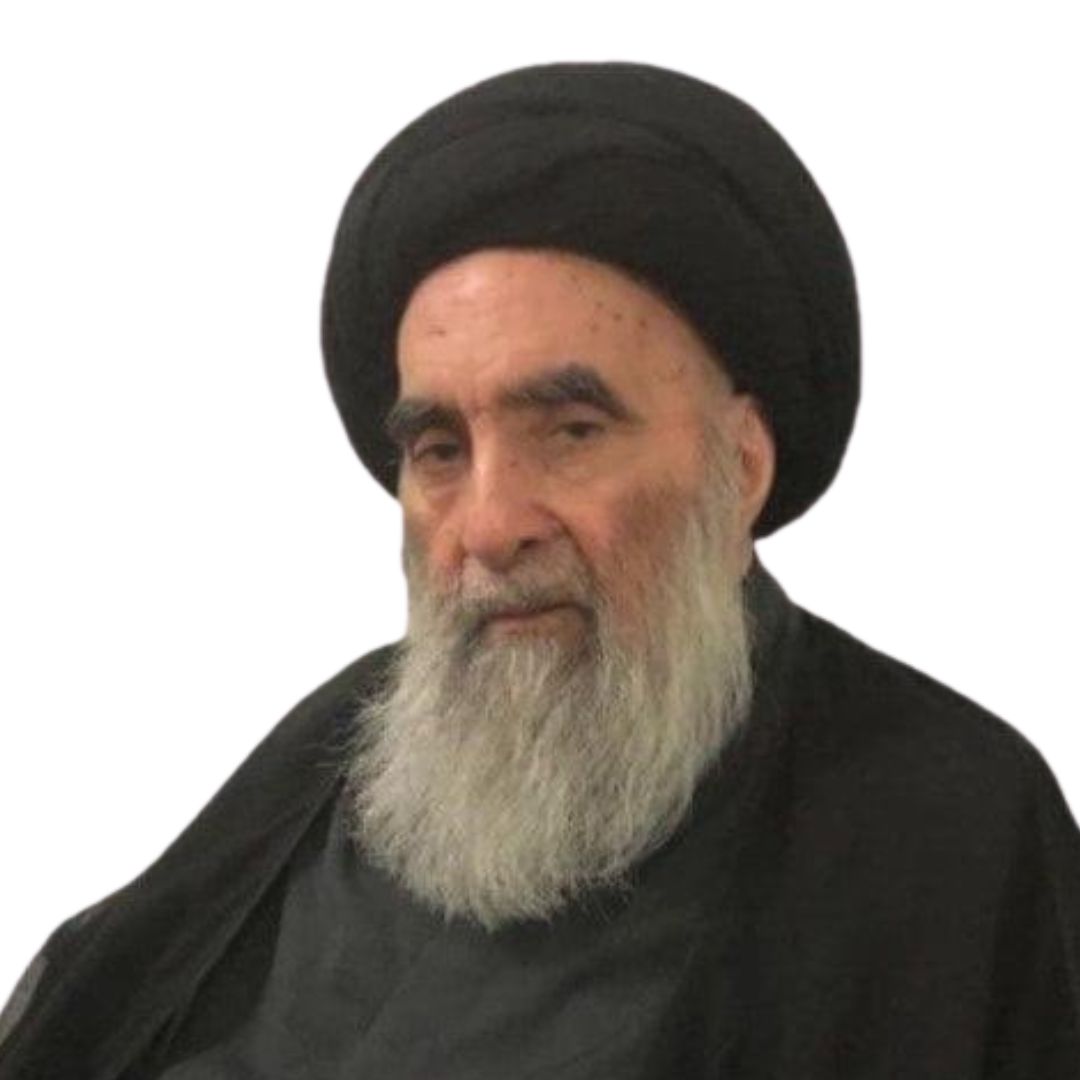
Grand Ayatollah Sayyid Ali Al-Husayni Al-Sistani
His Eminence Grand Ayatollah Sayyid Ali Al-Husayni Al-Sistani is the Supreme Religious Authority (al-marjiʿ al-aʿla) of the Twelver Shia Muslims worldwide. He studied under the most prominent scholars of the seminaries of Najaf and Qom, such as Grand Ayatollahs Sayyid Abulqasim Al-Khoei and Sayyid Husayn al-Burujurdi. Throughout his studies, he was known for his scholarly method, quick wit, and critical thought. At the young age of 31, he was given testaments of ijtihad by the seminary’s scholarly giants – a rare occurrence, especially at such a young age.
His Eminence began teaching both fiqh and usul at the level of Advanced Seminars (bahth al-kharij) and continued for over 30 years. After Grand Ayatollah al-Khoei passed away, many of the believers began to follow His Eminence as a religious authority (marjiʿ taqlid). His prominence as a marjiʿ grew as more of the older generation of marajiʿ passed away, until he became the most widely followed marjiʿ for Shia Muslims worldwide.
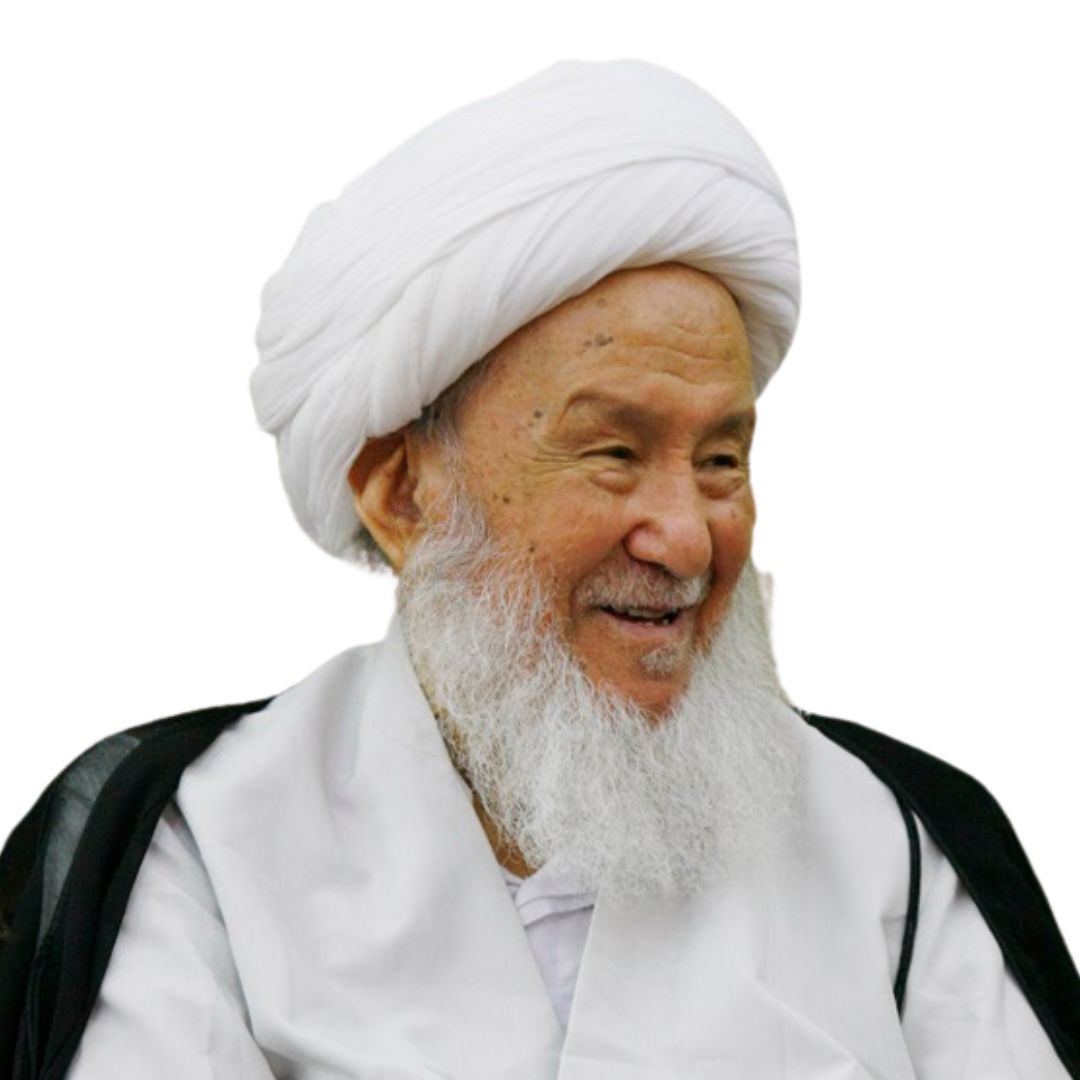
Grand Ayatollah Shaykh Muhammad Ishaq Al-Fayyad
His Eminence Grand Ayatollah Shaykh Muhammad Ishaq al-Fayyad is a grand scholar and Religious Authority (marjiʿ) for the Twelver Shia Muslims worldwide. His Eminence was the son of a rural farming family in a remote village in Afghanistan. His father recognized his brilliance at a young age, sending him to a neighbouring village to study reading, writing, and Quran at the young age of five. Over the years, he graduated in his studies from the remote village to a small seminary in another neighbouring village, to the City of Mashhad, Iran.
Finally, at the age of 18 His Eminence moved to the Holy City of Najaf to begin his studies under its prominent scholars. Most notably, His Eminence was a student of Grand Ayatollah Sayyid Abulqasim Al-Khoei, having reported his seminars on usul in a multivolume book titled “Muhadarat fi Usul al-Fiqh.” His Eminence became a religious authority (marjiʿ taqlīd) followed by the Shia public after Grand Ayatollah al-Khoei passed away.
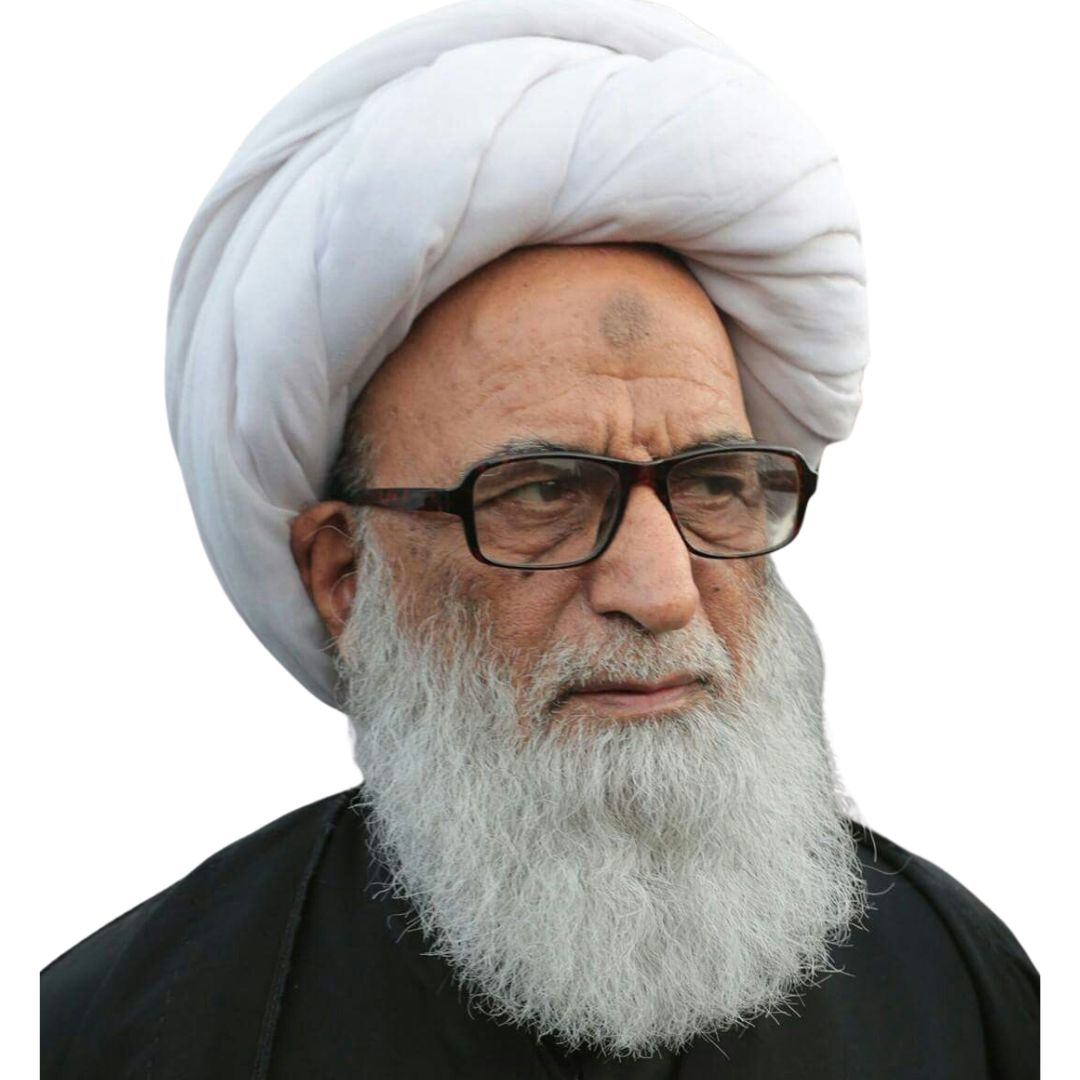
Grand Ayatollah Shaykh Bashir Husayn Al-Najafi
His Eminence Grand Ayatollah Shaykh Bashir Husayn al-Najafi is a grand scholar and Religious Authority (marjiʿ) for the Twelver Shia Muslims worldwide. He is the scion of a renowned scholarly family from Lahore, Pakistan. At a young age, he began his religious teachings at the hands of his grandfather, uncle, and other prominent scholars in his hometown. At the age of 22, His Eminence moved to the Holy City of Najaf to continue his seminary education.
There, he studied under the seminary’s most esteemed scholars, including Grand Ayatollahs Sayyid Abulqasim al-Khoei and Sayyid Muhammad al-Rawhani. In 1974, His Eminence began teaching at the level of Advanced Seminars (bahth al-kharij) and continues teaching to this day. His contributions to the Islamic disciplines and seminary include approximately 40 books, some of which have yet to be published.
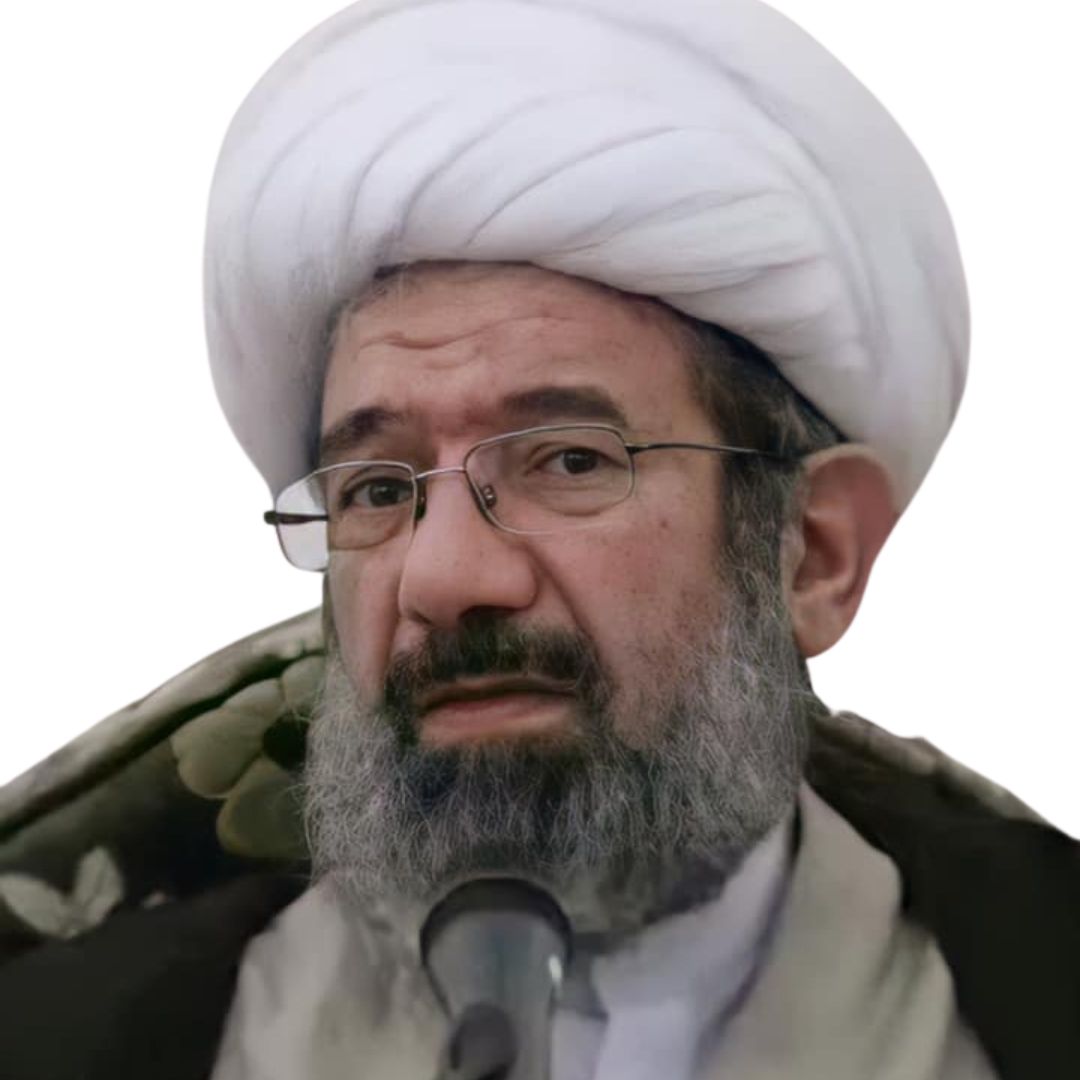
Shaykh Muhammad Baqir Al-Irawani
Shaykh Muhammad Baqir al-irawani is a professor of Advanced Seminars (bahth al-kharij) in fiqh and usul. He has been teaching at the level of Advanced Seminars and Advanced Intermediate Studies (sutuh ʿulya) for over forty years, and his lectures have been adapted into several multi-volume textbooks. He is a student of some of the Najaf Seminary’s most prominent scholars, including Grand Ayatollahs Sayyid Abulqasim al-Khoei, Sayyid Ali al-Sistani, Sayyid Muhammad Baqir al-Sadr, and Sayyid Muhammad Saeed al-Hakeem.
As the circumstances in Iraq continued to worsen due to the Iran-Iraq war, Shaykh al-Irawani migrated to Qom, where he continued his scholastic life. He returned to Iraq in the aftermath of the fall of the Saddam Regime in 2003. He is the descendant of a lineage of scholars going back to al-Fadil al-Irawani, a prominent scholar of the late 19th century.
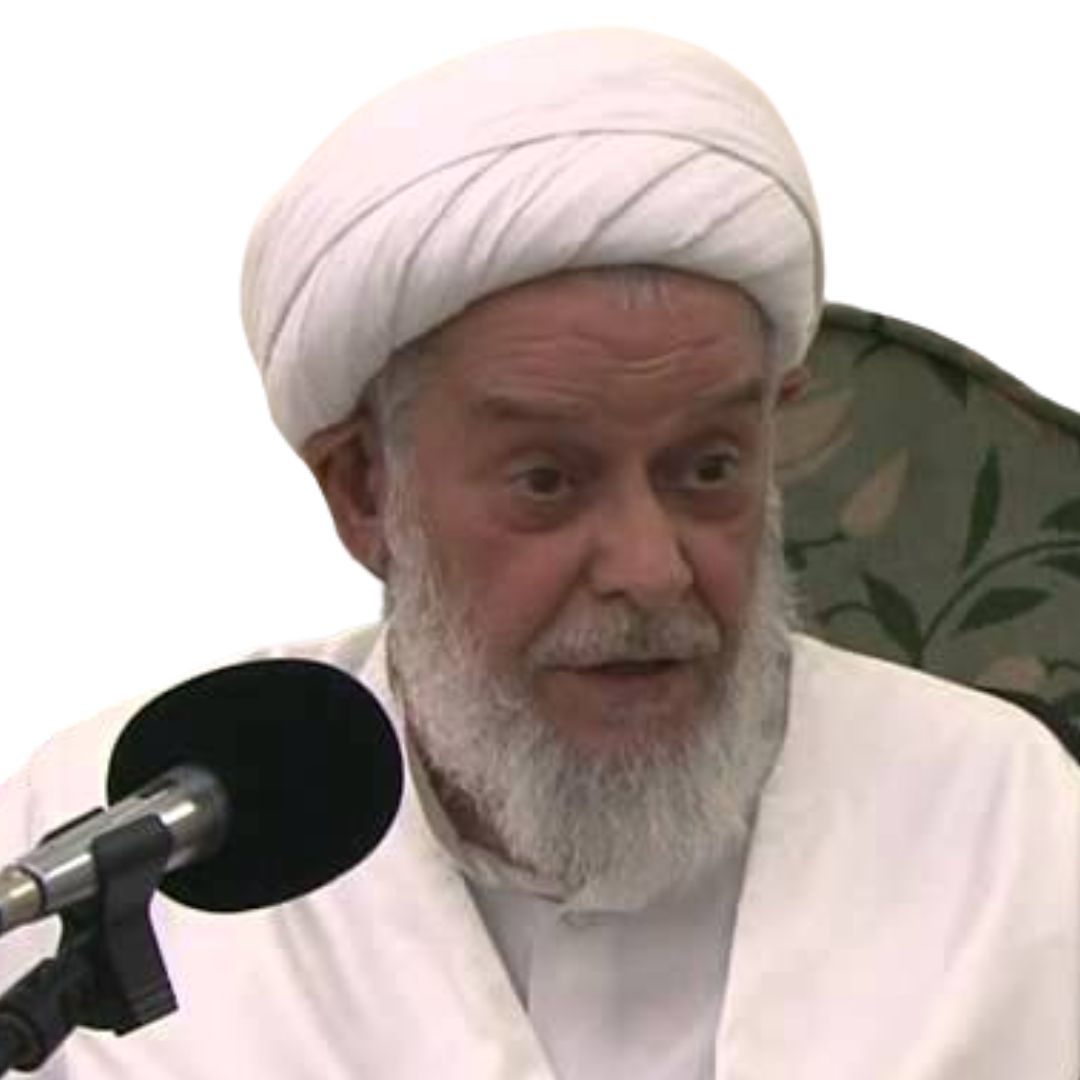
Shaykh Muhammad Hadi Al-Radi
Shaykh Muhammad Hadi al-Radi is a professor in the Islamic Seminaries of Najaf and Qom, and has been teaching at the level of Advanced Seminars (bahth al-kharij) for over thirty years. He began his studies at an early age in Najaf. He studied under some of the most prominent scholars of the twentieth century, including Grand Ayatollahs Sayyid Abulqasim al-Khoei, Sayyid Muhammad Baqir al-Sadr, Sayyid ʿAbdulsahib al-Hakeem, and Sayyid Muhammad Saeed al-Hakeem.
In 1980, the political circumstances in Iraq forced him – along with many other scholars – to migrate to Qom, where he continued his teaching. He returned to Iraq after 2003, and he is currently one of the Najaf Seminary’s most prominent professors, with hundreds of students attending his classes held within the Holy Shrine of Imam Ali (a).

Sayyid Muhammad Husayn Al-Hakeem
Sayyid Muhammad Husayn al-Hakeem is a professor of Advanced Seminars (bahth al-kharij) in fiqh and usul in the Islamic Seminary of Najaf, Iraq. He is a member of the esteemed al-Hakeem scholarly family, being the son of the Late Grand Ayatollah Sayyid Muhammad Saeed al-Hakeem. He studied Advanced Seminars under both his father and Grand Ayatollah Sayyid Ali al-Husayni al-Sistani. He also led the office of his father before he passed away in 2021, directing the work of schools, orphanages, missionary activities, and other charitable causes. He was imprisoned and tortured by the Saddam regime alongside the rest of the al-Hakeem family in 1983.
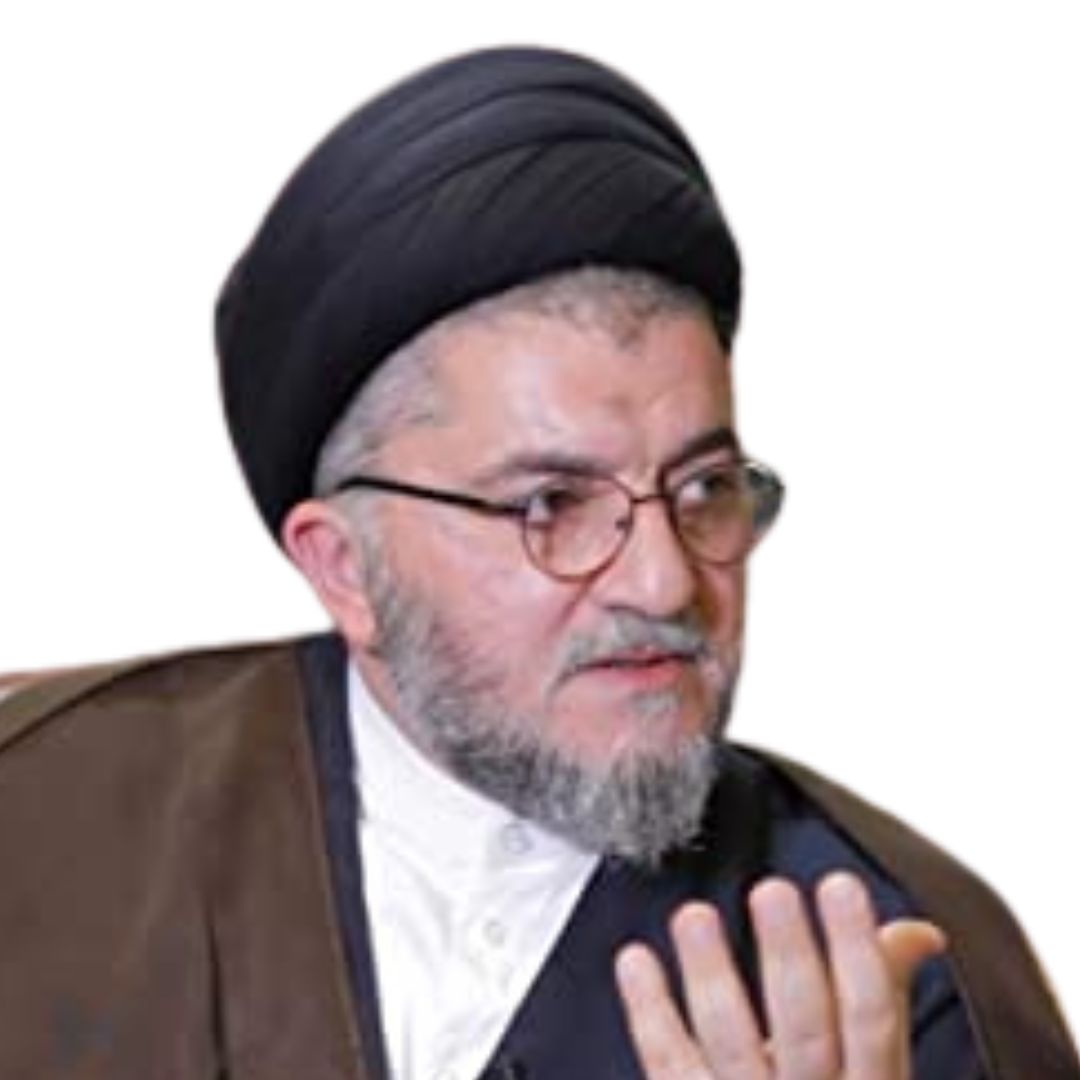
Sayyid Jafar Al-Hakeem
Sayyid Jafar al-Hakeem is a prominent professor and public intellectual from the Islamic Seminary of the Holy City of Najaf, Iraq. He currently teaches Advanced Seminars (bahth al-khārij) in fiqh and usul, as well as seminars in epistemology, philosophy, theosophy, and theology. In addition to his scholarly work, Sayyid al-Hakeem is a prominent Iraqi public intellectual. He was imprisoned and tortured by the Saddam regime alongside the rest of the al-Hakeem family in 1983. He appeared as a witness in the trial of Saddam Hussein, testifying to the cruel sectarian persecution of Shia scholars and scholarly families. He often speaks on issues of religious identity, pluralism, civic engagement, and contemporary issues.
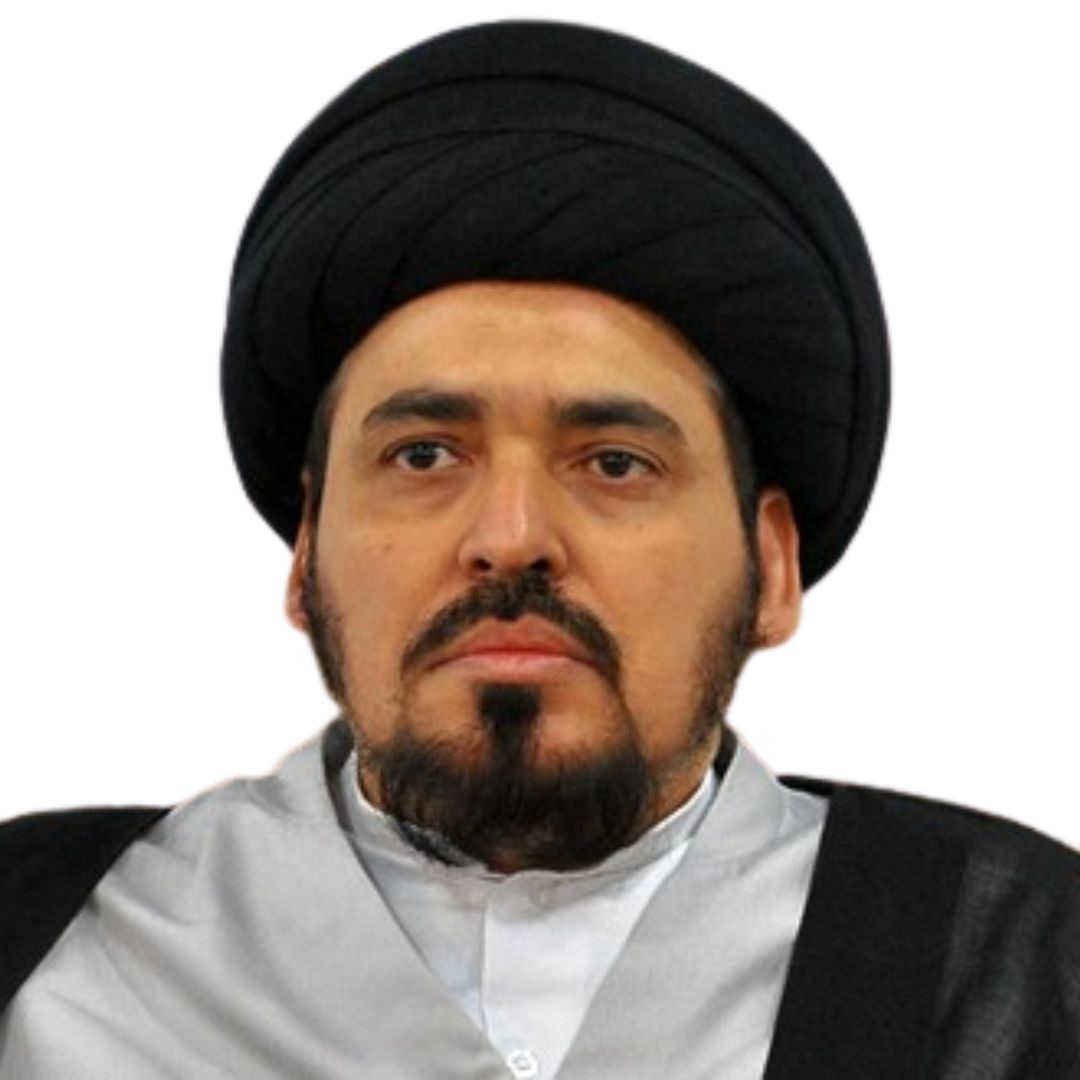
Sayyid Muneer Al-Khabbaz
Sayyid Muneer al-Khabbaz – an eminent scholar, thinker, and author – was born in Qatif, Saudi Arabia. At the age of 14, Sayyid Muneer travelled to the Holy City of Najaf to begin his training within the Islamic seminary. He is a student of renowned scholars such as Grand Ayatollah Sayyid Abulqasim al-Khoei and Grand Ayatollah Mirza Jawad Tabrizi. He later studied under the tutelage of Grand Ayatollah Sayyid Ali al-Sistani, benefitting much from his lessons in the principles of jurisprudence, as well as his extensive examination of modern sciences and their correlation with Islamic disciplines. Sayyid Muneer is the author of numerous publications, including scholarly texts as well as books and essays for a general readership.
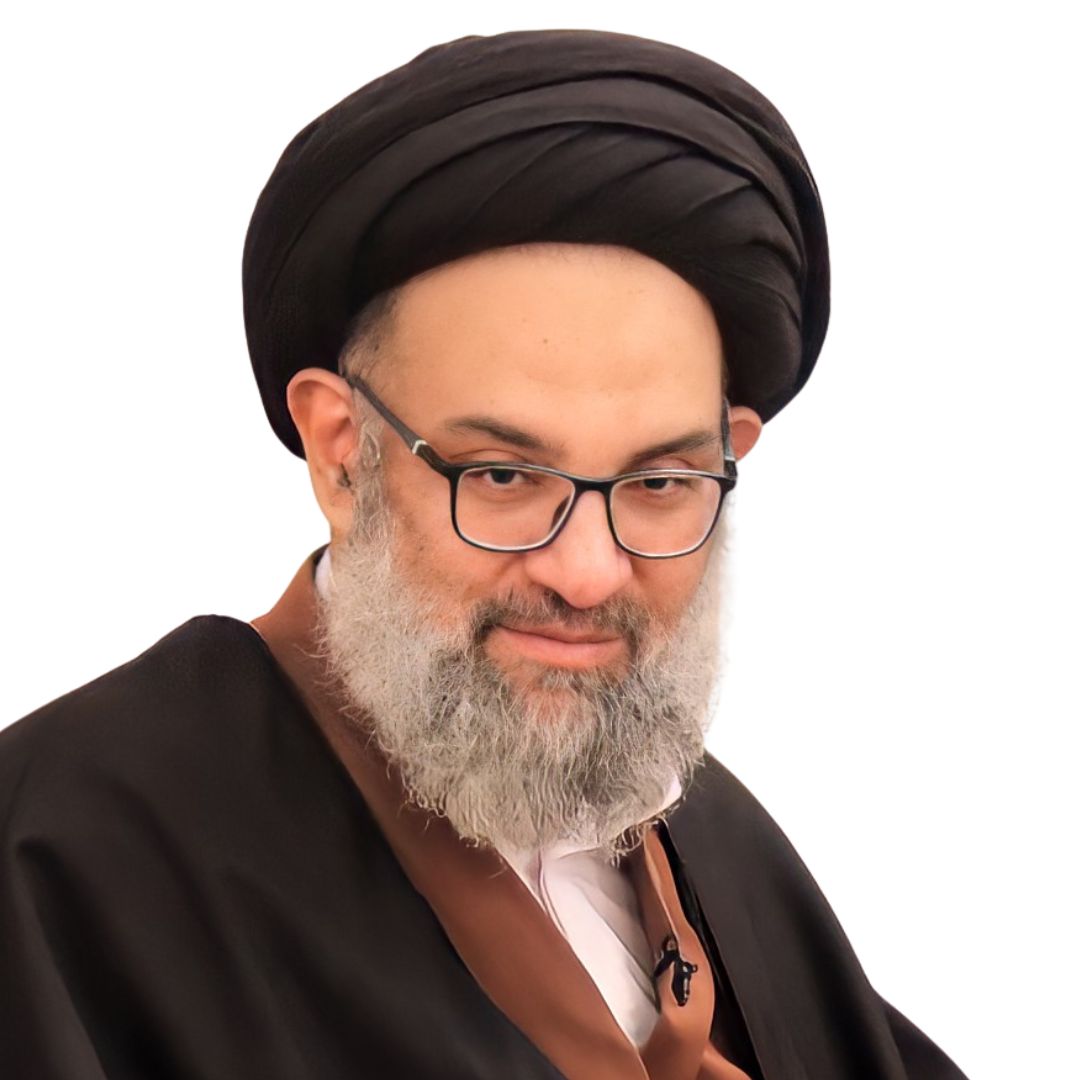
Sayyid Muhammad Sadiq Al-Khirsan
Sayyid Muhammad Sadiq al-Khirsan is a professor of Advanced Seminars (bahth al-kharij) in the Islamic Seminary of Najaf. He is the scion of a prominent scholarly family in Najaf, having been nurtured by his grandfather Ayatollah Sayyid Hasan al-Khirsan from a young age. He studied under the tutelage of esteemed scholars such as Grand Ayatollah Shaykh Ali al-Gharawi and Grand Ayatollah Sayyid Ali al-Sistani. He is a prolific author, having published over twenty books on topics of jurisprudence, history, and ethics.

Sayyid Husayn Al-Hakeem
Sayyid Husayn al-Hakeem is a professor of Advanced Seminars (bahth al-kharij) in fiqh and usul in the Islamic Seminary of Najaf, Iraq. He is a member of the esteemed al-Hakeem scholarly family, being the son of Ayatollah Sayyid ʿAlaʾ al-Din al-Hakeem and grandson of Grand Ayatollah Sayyid Muhsin al-Hakeem. He was imprisoned and tortured by the Saddam regime alongside the rest of the al-Hakeem family in 1983. There, he began attending the Advanced Seminars of Grand Ayatollah Sayyid Muhammad Saeed al-Hakeem. After his release, he moved to Qom to study in its seminary under renowned scholars such as Grand Ayatollahs Mirza Jawad al-Tabrizi and Shaykh Wahid al-Khorasani. He began teaching at the level of Advanced Seminars in the Qom Seminary, and continued to do so in Najaf after moving back in 2003.
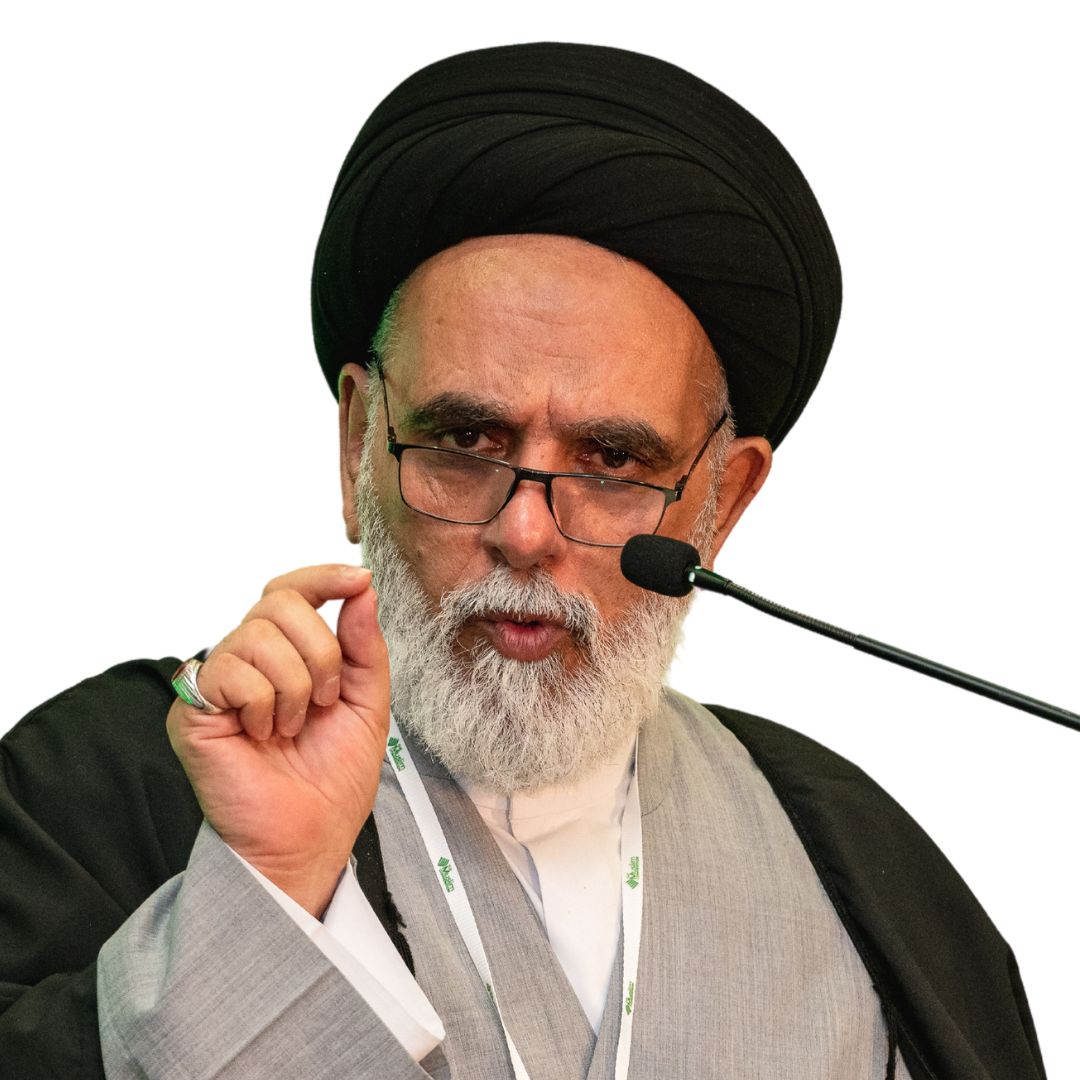
Sayyid Ahmad Al-Ashkiwari
Sayyid Ahmad al-Ashkiwari is a professor of Advanced Seminars (bahth al-kharij) in fiqh, usul, and kalam. Alongside his scholarly activities, Sayyid al-Ashkiwari serves in a supervisory role in numerous pioneering projects of the Islamic Seminary in the Holy City of Najaf, including the Tibah Center and the Najaf Online Seminary for Women. In addition, he oversees the seminary’s preaching project, which includes the seminary’s educational activities during the Arbaʿin pilgrimage season. Sayyid al-Ashkiwari studied in the seminaries of the holy cities of Najaf and Qom, under the tutelage of esteemed scholars such as the Late Shaykh Mirza Jawad al-Tibrizo, Grand Ayatollah Shaykh Husayn Vahid Khorasani, Ayatollah Shaykh Muhammad Baqir al-Irawani, and Ayatollah Shaykh Hadi al-Radi.
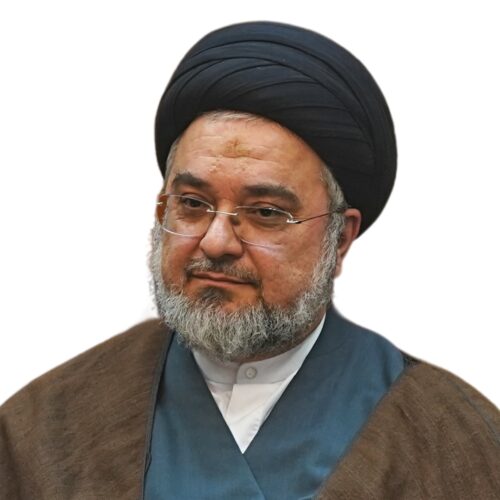
Sayyid Muhammad Ali Bahr Al-Ulum
His Eminence Dr. Sayyid Muhammad Ali Bahr al-Ulum is a professor of Advanced Intermediate Studies (sutuh ʿulya) in the Islamic Seminary of Najaf. Alongside his seminary teaching and studies, Sayyid Muhammad Ali Bahr al-Ulum dedicated his time to academic studies, receiving a PhD in Constitutional Law. He studied Advanced Seminars (bahth al-kharij) under grand contemporary scholars such as Grand Ayatollahs Shaykh Wahid al-Khorasani and Sayyid Muhammad Saeed al-Hakeem.
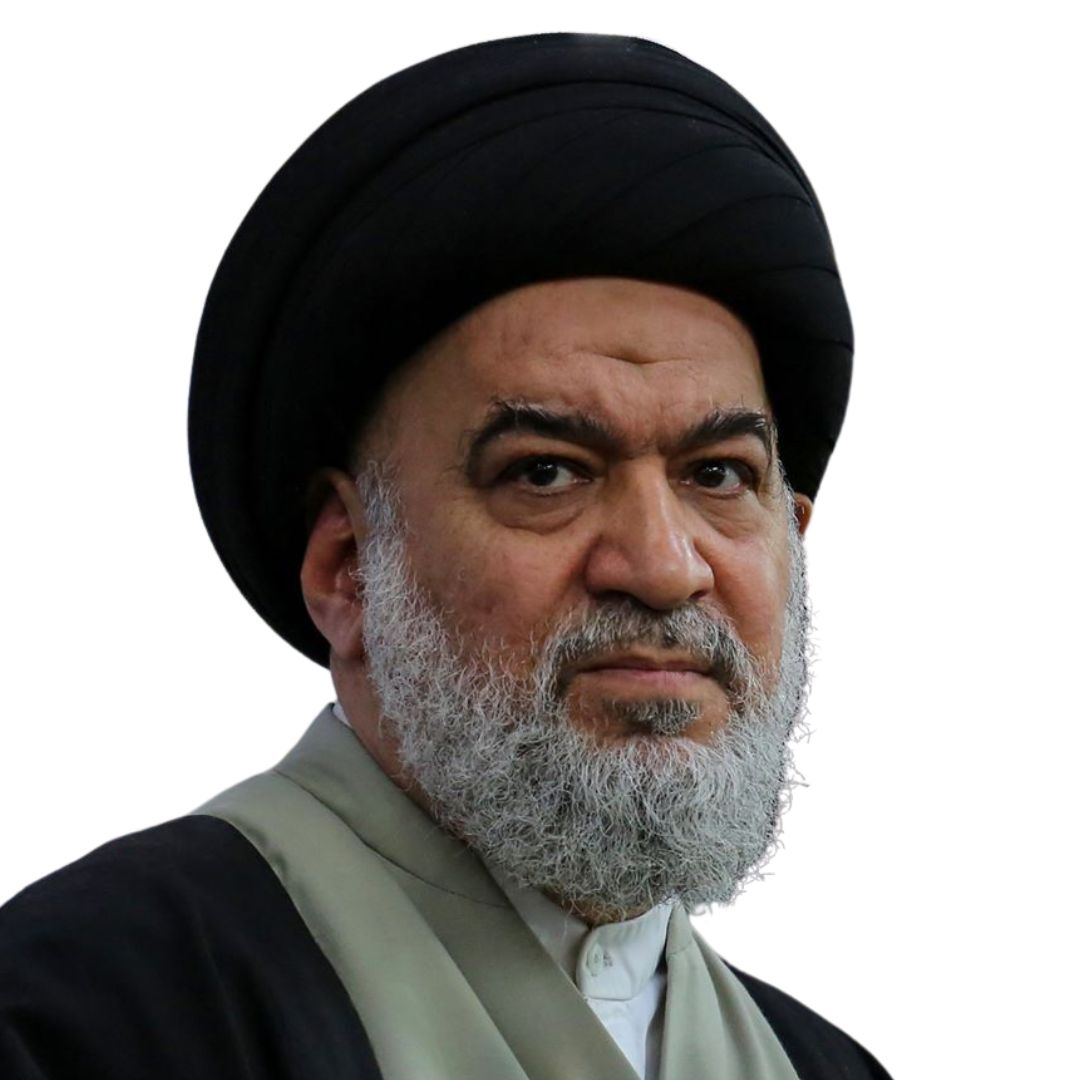
Sayyid Ahmad Al-Safi
Sayyid Ahmad al-Safi is a representative of the Supreme Religious Authority Grand Ayatollah Sayyid Ali al-Sistani and Religious Trustee (previously Secretary General) of the al-ʿAbbas Holy Shrine in Karbala. His trusteeship of the shrine began when all four of Grand Marajiʿ in Najaf (Grand Ayatollahs Sayyid Ali al-Sistani, Sayyid Muhammad Saeed al-Hakeem, Shaykh Muhammad Ishaq al-Fayyad, and Shaykh Bashir Husayn al-Najafi) authorised him and two other scholars to form a committee to oversee the shrines of Karbala in the direct aftermath of the US invasion of Iraq in 2003.
He has overseen numerous charitable, academic, and cultural initiatives led by the al-ʿAbbas Holy Shrine across Iraq. He is also professor of Advanced Intermediate Studies (sutuh ʿulya) in the Islamic Seminary in Najaf, Iraq.
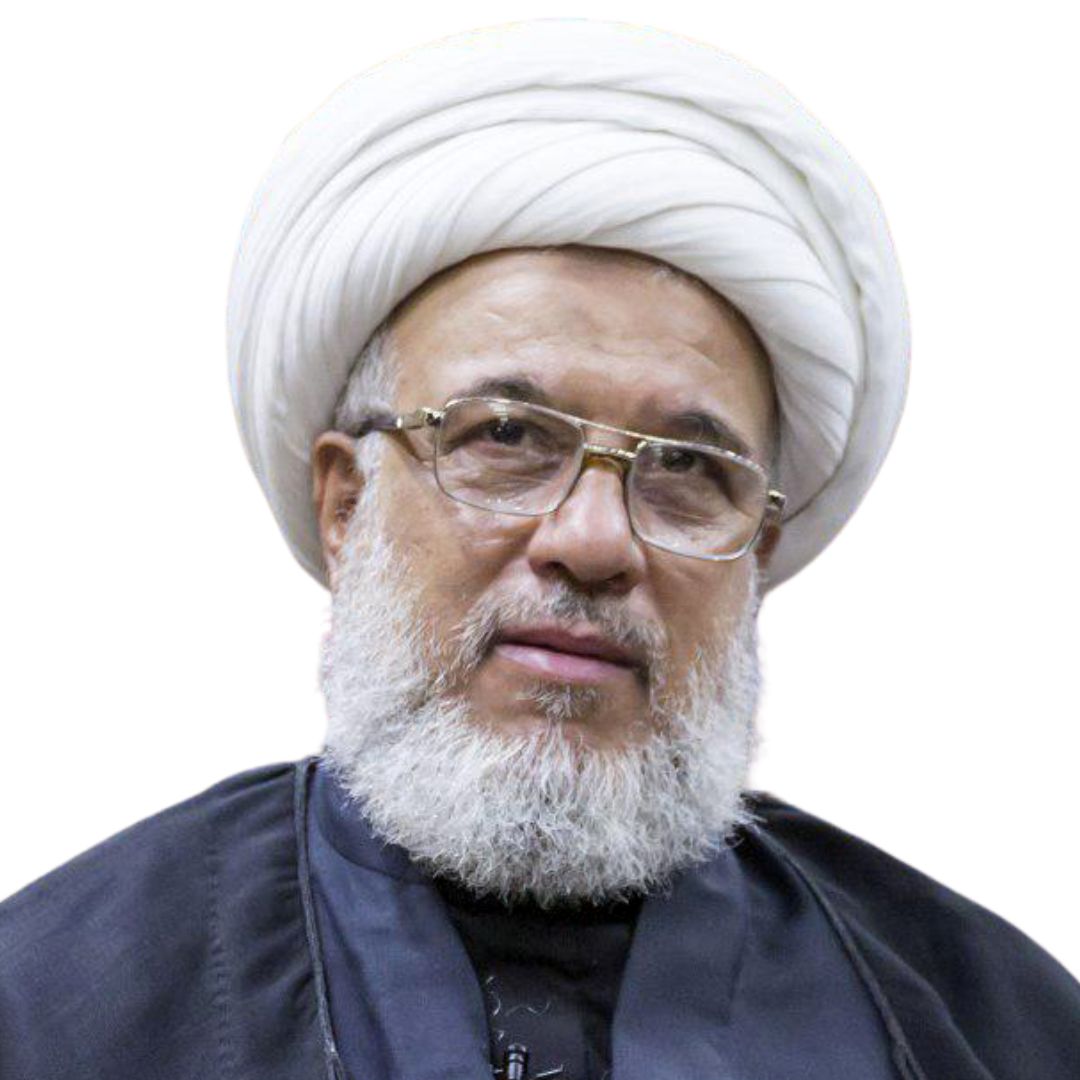
Shaykh ʿAbdulmahdi Al-Karbalai
Shaykh Abdulmahdi al-Karbalai is a representative of the Supreme Religious Authority Grand Ayatollah Sayyid Ali al-Sistani and Religious Trustee (previously Secretary General) of the Imam Husayn Holy Shrine in Karbala, Iraq. His trusteeship of the shrine began when all four of Grand Marajiʿ in Najaf (Grand Ayatollahs Sayyid Ali al-Sistani, Sayyid Muhammad Saeed al-Hakeem, Shaykh Muhammad Ishaq al-Fayyad, and Shaykh Bashir Husayn al-Najafi) authorized him and two other scholars to form a committee to oversee the shrines of Karbala in the direct aftermath of the US invasion of Iraq in 2003. He has overseen numerous charitable, academic, and cultural initiatives led by the Imam Husayn Holy Shrine across Iraq.
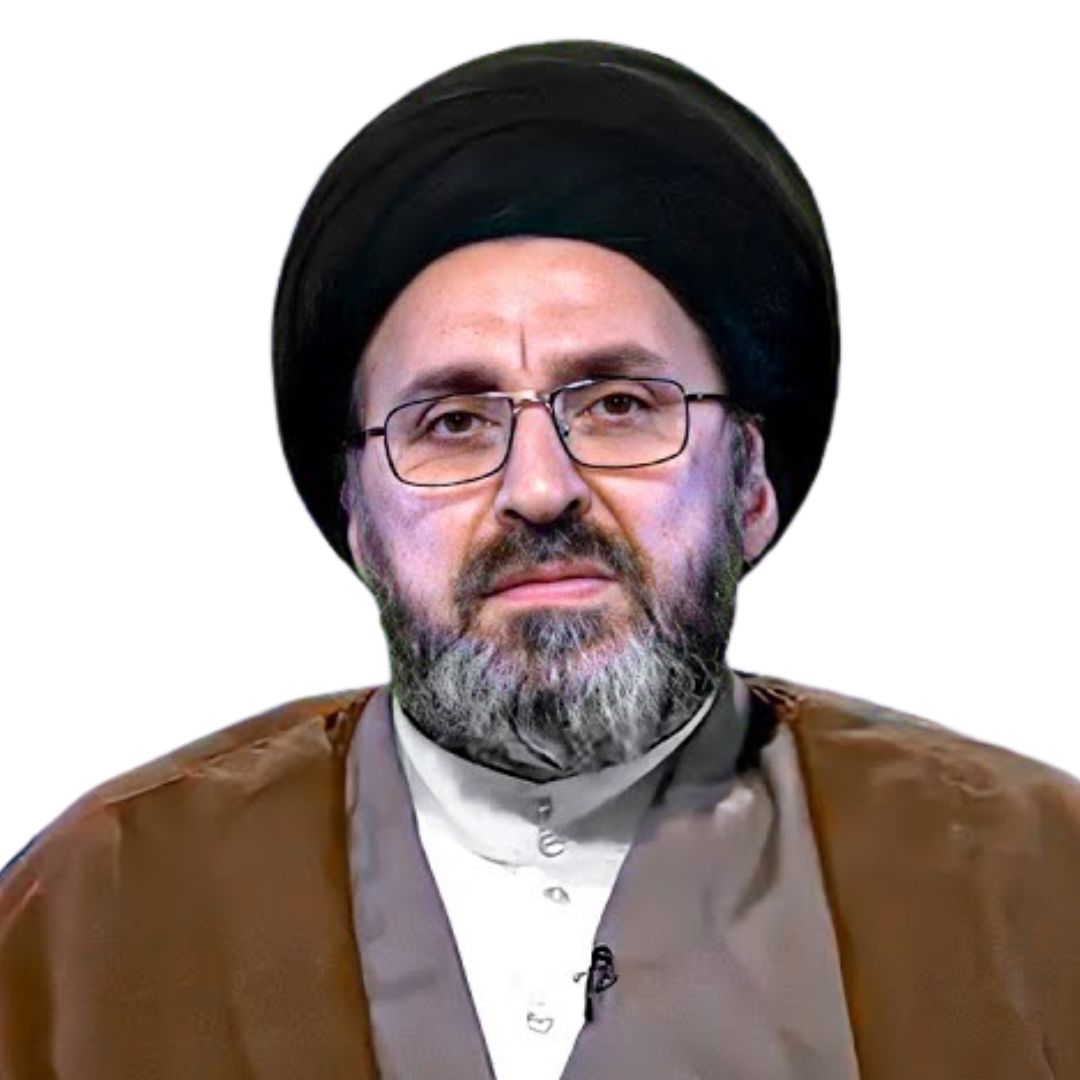
Sayyid Rashid Al-Husayni
Sayyid Rashid al-Husayni is professor of Advanced Intermediate Studies (sutuh ʿulya) in the Islamic Seminary in Najaf, Iraq. He became a prominent religious TV personality after appearing for more than a decade on numerous religious programs after 2003. He heads the al-Mustafa Institute for Religious Guidance and Awareness. He is also the founder of al-Mujib, a website and mobile phone application for answering religious inquiries.
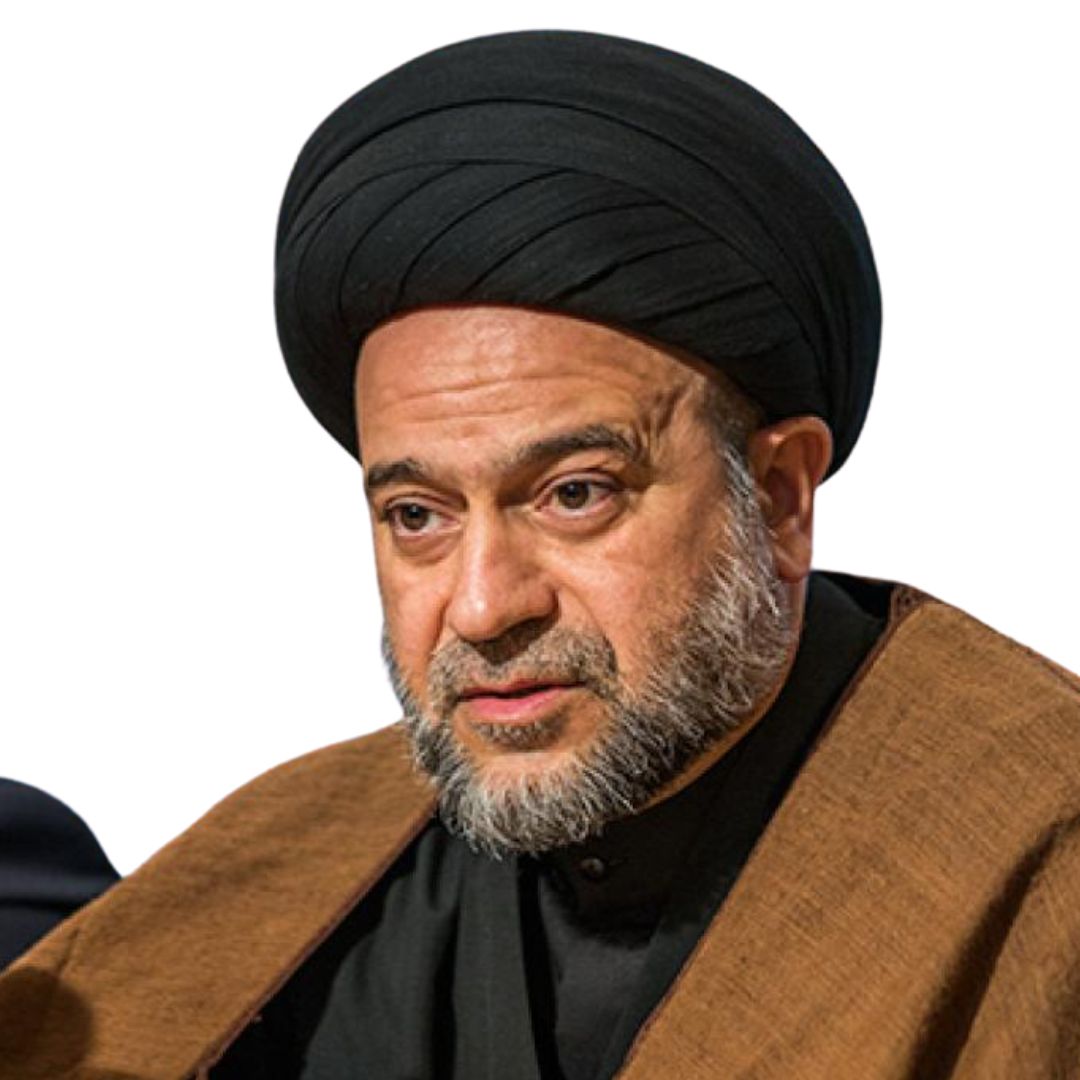
Sayyid Ala Al-Musawi
Sayyid ʿAlaʾ al-Musawi is professor of Advanced Intermediate Studies (sutuh ʿulya) in the Islamic Seminary in Najaf, Iraq. He served as the Director of the Shia Endowment Office – overseeing all Shia shrines, mosques, and holy places in Iraq – for over 5 years. He is also the founder and director of multiple religious and charitable organisations and schools in and outside of Iraq, such as al-ʿAqilah Charitable Schools in Iraq. He served as the representative of Grand Ayatollah Sayyid Ali al-Husayni al-Sistani in the United Arab Emirates and Oman. Aside from his seminary activities, he is also the resident scholar of Masjid al-Sahib, delivering weekly sermons there.
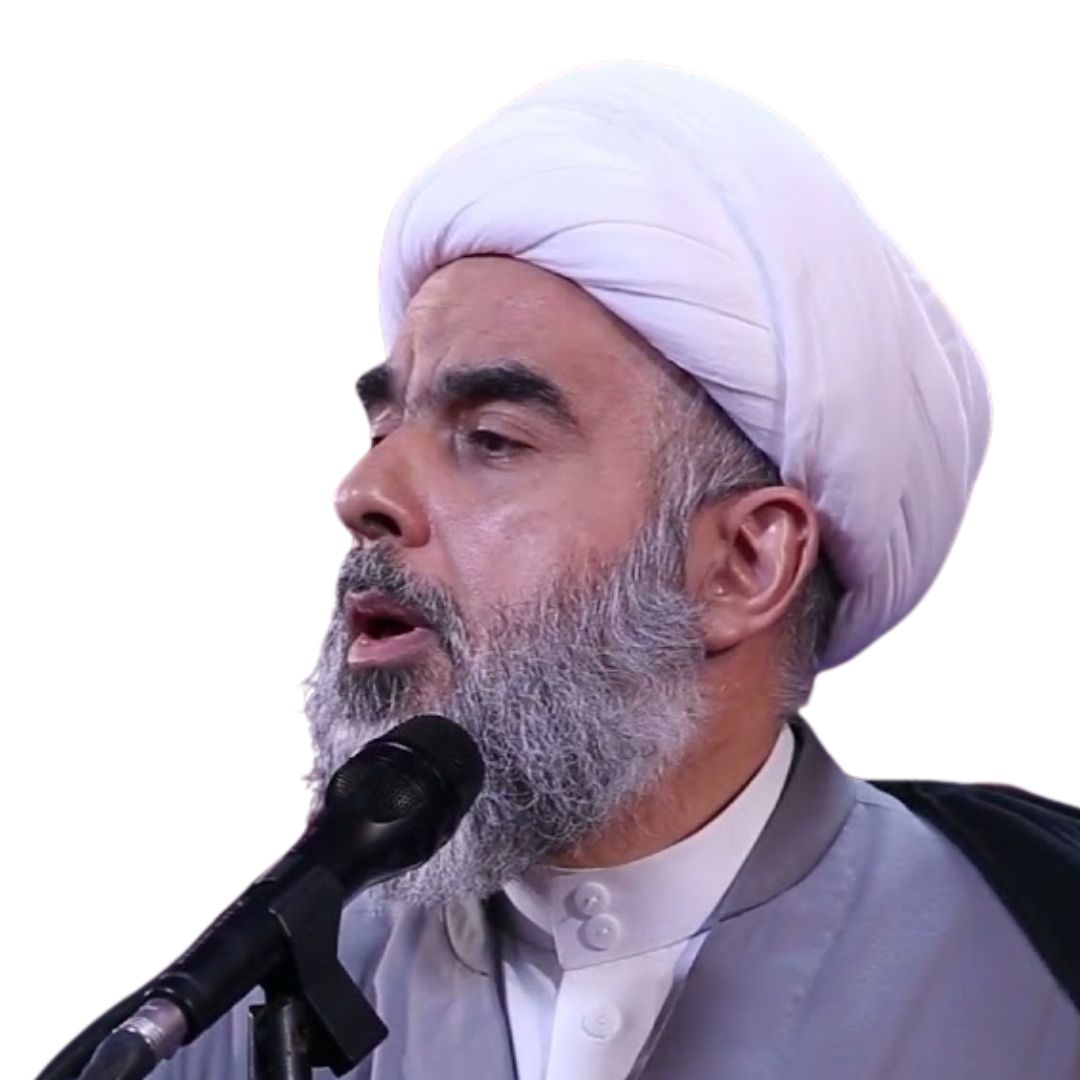
Shaykh Husayn Al-Yasin
Shaykh Husayn al-Yasin is a professor in the Islamic Seminary in Kadhimiyyah, Iraq. He studied under the Islamic Seminary’s most renowned contemporary scholars, including Grand Ayatollah Sayyid Muhammad Saeed al-Hakeem and Ayatollah Sayyid Muhammad Rida al-Sistani. He is also the resident scholar of al-Yasin Mosque in Kadhimiyyah, neighbouring the al-Kadhimayn Shrine. He regularly holds educational seminars for seminary students and for the general public. Shaykh Husayn al-Yasin serves as the representative of Grand Ayatollah Sayyid Ali al-Husayni al-Sistani in Kadhimiyyah. He hails from the renowned al-Yasin scholarly family, and his maternal grandfather is Sayyid ʿAbdulhusayn Sharaf al-Din.
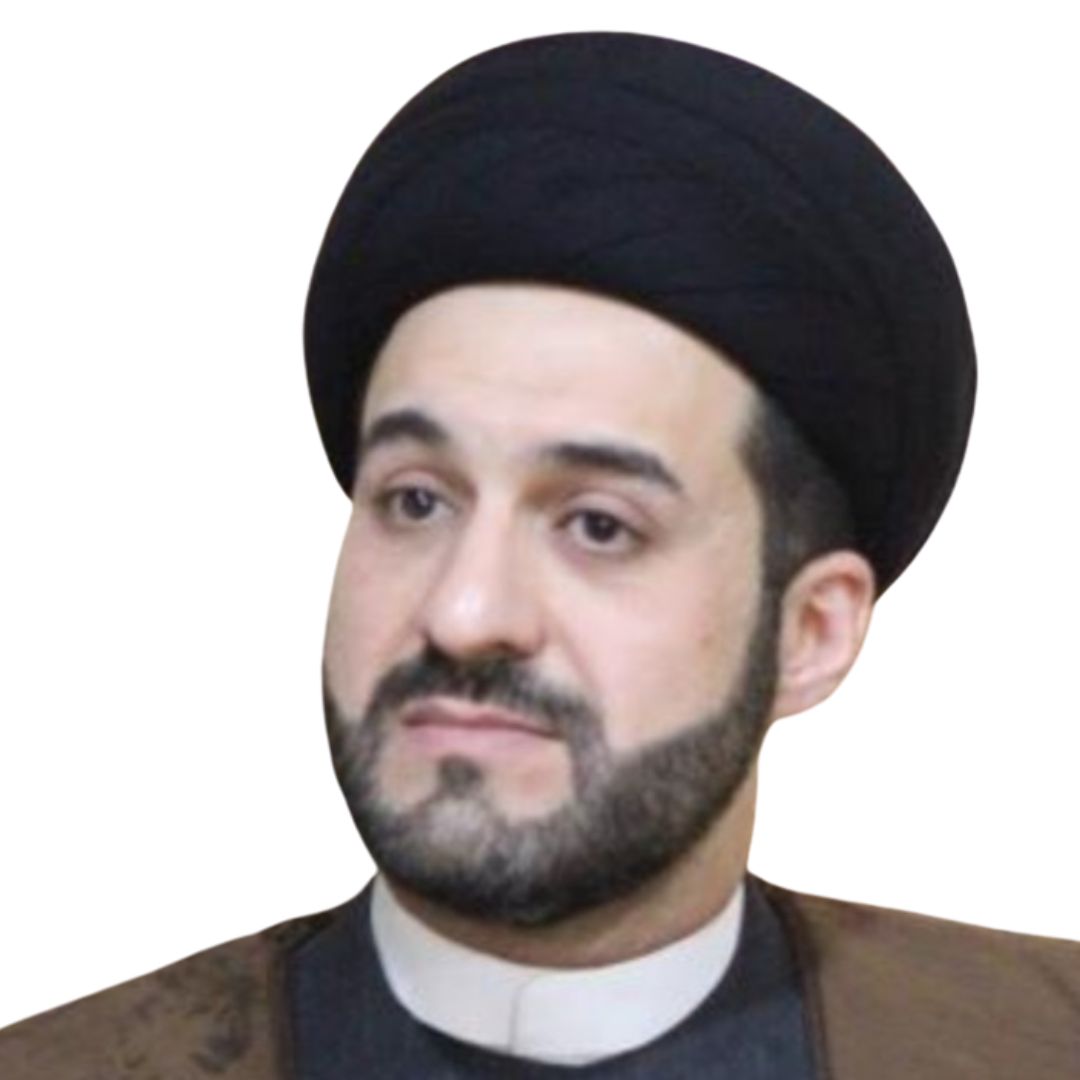
Sayyid Jawad Al-Khoei
Sayyid Jawad al-Khoei is the Secretary General of al-Khoei Institute in Iraq, as well as a member of a number of theological and religious organisations focusing on interfaith dialogue. In 2012, he received the prestigious award for peace from the Foundation of Relief and Reconciliation in the Middle East, presented at the House of Lords, England. He is also the UNESCO Chair for the Development of Interreligious Dialogue Studies in the Islamic World at the University of Kufa. Sayyid Jawad is currently a Ph.D. candidate at the International Islamic University of Science in Amman, Jordan. He is the grandson of Grand Ayatollah Sayyid Abulqasim al-Khoei.
